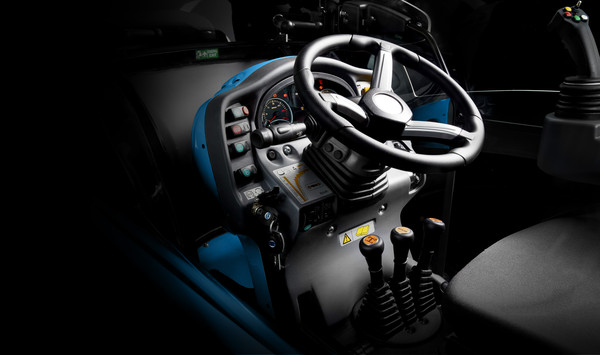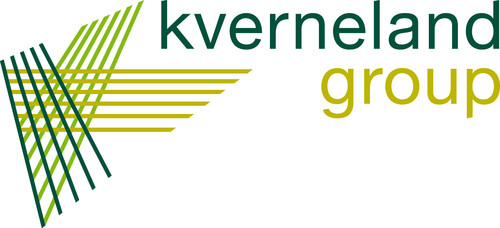
Research and innovation are the strong points of BCS
The Lombardy based company presents to the press its new products and the strategies to develop its presence in international markets. Innovative technical solutions and attention to market trends are the strong points of this company, one of the most important producers of tractors for specialized crops
Even a 5% decrease in turnover is good news in a scenario in which the global economy is not picking up and unforeseen crises have involved macro-regions of the world. For this reason BCS Group has started from this year to drastically modify its activities, reorganizing its plant in Luzzara, and launching innovative products, demonstrating initiative on the market. Among the new products is the K105 tractor, presented at EIMA in November, and the i-Spark 650 tractor that, in contrast with current standards, is equipped with a gasoline engine. “Restrictions and obligations imposed on diesel engines constitute a huge problem for machinery designed to be small in size”, Fabrizio Castoldi, president of BCS Group, explained during the press conference held in the autumn in the headquarters in Abbiategrasso. In fact, he went on to say, “All equipment meant to reduce pollution is also cumbersome. A gasoline engine requires slightly more expensive fuel, but this is compensated by superior performance and smaller quantities of polluting emissions.” The choice is so unusual that before carrying out the project, management at BCS had to check that so called farmers’ gasoline still existed. This has in fact never been removed from the market, although in these years practically all production of agricultural machinery has been equipped with diesel engines.
The company must now wait and see how the market reacts, but management is quite confident since visitors at the Eima showed a keen interest for the new products, and for the others showcased at the exposition in Bologna.
“We must say that this EIMA edition has been one of the most rewarding – Castoldi told Mondo Macchina/Machinery World – because we were practically under siege for the whole duration of the fair. We came into contact with many potential buyers, of course this interest will have to translate into concrete steps, as is the case with all fairs, but it is evident that there is much interest, restrained only by economic uncertainty.”
It does however seem that there is no place for uncertainty at the Abbiategrasso company. The figures presented indicate a situation that is on the whole positive, thanks also to productive and geographical diversification that in some areas has lead to an increase in revenues, able to some degree to compensate the downturns registered in other markets.
Turnover, almost 104 million euros, is largely due to traditional production – agricultural machinery for the maintenance of greenery – which amounts to 81% of the total. The remaining 19% (19,722 million) is due to the energy sector. Overall, 60.7% of turnover is from exports, an area in which the company has seen profits growing in the main areas: Europe, Middle East, Asia, with some drops in Central and Latin America and in Africa. In both cases, economic development has been slowed down by political unrest. Political uncertainty, although of a completely different nature, also weighs on the indicators for the next year with regard to the European market. On the other hand, indicators remain positive for the US, where BCS expects revenues to increase next year, also thanks to a favourable rate exchange. Overall, forecasts for the period September 1st, 2016/August 31, 2017, indicate an increase of revenues of about 2% for the agro-greenery sector, and of 5% for the energy sector.
The increase in sales and the good performance registered this year are due to the feature that has always characterized this firm and that today more than ever has proven to be the reason behind its success: technological research, and the great number of patents that make the products of a company such as this one innovative and able to compete with the giants of the sector. The K105 alone, feather in the cap and protagonist among the new products presented this year, has earned six patents. An effective way to combat counterfeiting and a means to conquer the most precious segments of the market, clients interested in machinery with superior performance that allow to recoup the initial investments using the machinery in a more intense way and for more profitable activities.
Cislaghi: “we focus on flexibility and plannig”
Mondo Macchina/Machinery World has interviewed the marketing and distribution director of BCS Group Carlo Cislaghi to take a better look at the short-term programs and to better understand the strategies the company intends to implement
You said that there was a very large crowd at EIMA but that compared to previous editions there were few requests for brochures. Do you think this is unusual? Today in fact everybody uses the internet to look up information...
Yes we did consider this, but it’s not the only reason. I think there is interest in buying but that decisions are put off in order to wait and see how economic contexts will develop.
You are not referring only to Italy, am I correct?
No, of course. 80% of our activity is carried out on the European market. Apart from small variations the situation in Italy is very similar to that of France, Germany and of other countries. The anticipated growth of the GDP in the Euro area of 1.7% in 2017 is quite optimistic in my view. We continue to be strong in the national market because we are a historic brand. We have more difficulties in other important foreign markets, such as France and Germany, because we do not sell some products that are in demand, products that we are however working on.
What is in demand in these countries?
It is not a uniform demand. Countries in Central Europe continuously request hydrostatic tractors, we do not yet produce them although we have already started to design them. There is then a small demand for haying machines, and at present there are no plans for the production of these. With regard to electricity generating units the demand is for more powerful machines with more sophisticated ecological features, coming from some specific markets such as Switzerland, Germany and Austria.
Speaking of ecological standards, the regulations have become increasingly restrictive and seem to pose some obstacles, in that they cause an increase of costs and limit performance. Despite this a company such as yours might actually benefit from these commercial regulations because not all firms are able to produce such sophisticated machinery.
Indeed, if we are speaking of European markets, of developed markets. The disadvantage is that a company like ours must produce a double line of products, because in less developed countries common rail engines and engines equipped with electronics cannot be marketed. So this represents a cost, the fact that we must keep two parallel lines of production.
Speaking of your presence in foreign countries, apart from exportation, do you continue also to produce abroad?
We are investing a lot in India, where we have a branch that is not only commercial but also productive. The core part of the machinery is sent from Italy and the assembly takes place in India, where we have about thirty people working for us, and this branch covers only part of the country. We could in fact expand in other parts of the country where our company is little known. Also, this branch in particular is working very well with Pakistan, despite the difficult relations between the two countries.
Much of your strength is guaranteed by the patent system, because it is thanks to innovation that you are able to maintain and increase large shares of the market. However, the patent system is not respected everywhere and imitations are very frequent in this sector. Does your company suffer from this?
Yes the company suffers in places where it is difficult to defend patents and make them understood. It is however true that when clients buy a BCS machine they do it because they trust our company.
In other words, would you say that defending a patent is not only about legal measures, but more about reputation, about loyalty of the client?
Undoubtedly reputation, Service and customers’ loyalty are fundamental for IP protection. Nevertheless, we have some ongoing legal actions, even if in certain geographical areas we can’t rely too much on them.
You are investing to reorganize a plant. What does this reorganization consist in? What will change in the production methods?
It is necessary to update new technologies and modify methods of production. The introduction of innovative concepts such as lean manufacturing allows a company to operate on the market at the right moment, with good timing and with the right price.
Does this mean that you are reducing the “time to market”, that is the time it takes to produce a machine ready to sell starting from a project?
Yes, and this of course is a decisive element for a company in terms of revenue. The K105 tractor has lead us to consider these aspects in particular.








